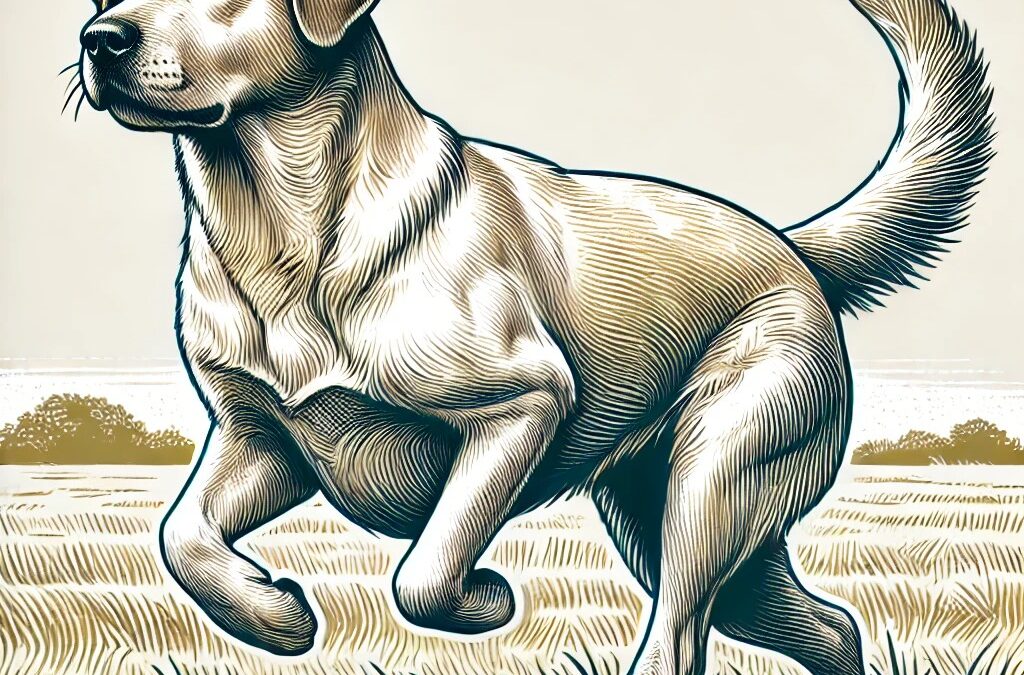As pet owners, we strive to provide our furry companions with the best care possible. However, two significant health concerns, canine cancer and osteoporosis, pose serious risks to their well-being. This article delves into the risk factors associated with these conditions and offers insights into prevention strategies, aiming to equip pet owners with the knowledge needed to safeguard their dogs’ health.
Understanding Canine Cancer
Canine cancer is a leading cause of death among dogs, affecting various breeds and ages. It encompasses a range of malignancies, including lymphoma, mast cell tumors, and osteosarcoma. Identifying the risk factors can help in early detection and intervention.
Common Risk Factors for Canine Cancer
- Age: Older dogs are more susceptible to cancer due to accumulated cellular damage over time.
- Breed: Certain breeds, such as Golden Retrievers, Boxers, and Rottweilers, have a higher predisposition to specific cancers.
- Genetics: Family history plays a crucial role; dogs with cancer-prone relatives are at greater risk.
- Environmental Exposure: Prolonged exposure to carcinogens, such as pesticides and tobacco smoke, can increase cancer risk.
- Diet and Obesity: Poor diet and obesity can contribute to the development of cancer, emphasizing the importance of balanced nutrition.
Recognizing Osteoporosis in Dogs
Osteoporosis, a condition characterized by weakened bones, is less commonly discussed but equally concerning. It can lead to fractures and reduced mobility, significantly impacting a dog’s quality of life.
Common Risk Factors for Canine Osteoporosis
- Age: Similar to cancer, older dogs are more prone to osteoporosis due to natural bone density loss.
- Breed: Small and toy breeds are particularly susceptible, but large breeds can also be affected.
- Nutritional Deficiencies: Lack of essential nutrients, particularly calcium and vitamin D, can weaken bones.
- Lack of Exercise: Regular physical activity is crucial for maintaining bone density; sedentary lifestyles increase osteoporosis risk.
- Hormonal Imbalances: Conditions like hypothyroidism and hyperparathyroidism can contribute to bone density loss.
Prevention Strategies for Canine Cancer and Osteoporosis
Prevention is always better than cure. Implementing proactive measures can significantly reduce the risk of both cancer and osteoporosis in dogs.
Diet and Nutrition
- Balanced Diet: Provide a well-balanced diet rich in essential nutrients. Incorporate high-quality proteins, healthy fats, and a variety of fruits and vegetables.
- Supplements: Consider supplements like Omega-3 fatty acids, antioxidants, and vitamins to support overall health and immunity.
- Weight Management: Maintain a healthy weight to reduce the risk of obesity-related cancers and bone density loss.
Regular Exercise
- Physical Activity: Ensure your dog gets regular exercise to strengthen bones and maintain a healthy weight. Activities like walking, running, and playing are beneficial.
- Strength Training: Incorporate strength training exercises, such as climbing stairs or playing with resistance toys, to build bone density.
Routine Veterinary Check-ups
- Regular Screenings: Schedule routine veterinary visits for early detection of potential health issues. Regular blood tests and imaging can identify problems before they become severe.
- Dental Health: Dental hygiene is essential, as infections can spread and affect overall health, including bones.
Environmental Safety
- Limit Exposure to Carcinogens: Avoid exposing your dog to harmful chemicals, pesticides, and second-hand smoke.
- Safe Living Environment: Provide a safe and clean living environment to reduce the risk of infections and injuries.
Understanding the risk factors for canine cancer and osteoporosis is crucial for proactive pet care. By implementing preventive measures, including a balanced diet, regular exercise, and routine veterinary check-ups, you can significantly reduce the risk of these conditions and ensure your dog leads a healthy and fulfilling life. Stay informed, stay vigilant, and cherish every moment with your loyal companion.















